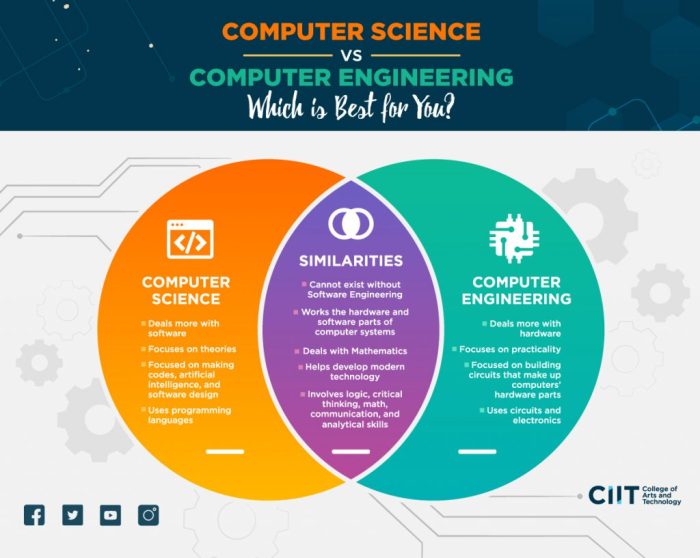One of the most significant trends is the rise of cloud computing. Cloud-based platforms and services are becoming increasingly popular as they offer businesses a more cost-effective and scalable way to store and process data. This has led to a growing demand for IT engineers and computer engineers with expertise in cloud computing.
Artificial Intelligence and Machine Learning
- Artificial intelligence (AI) and machine learning (ML) are also having a major impact on the IT and computer engineering industries. AI-powered systems are being used to automate tasks, improve decision-making, and provide personalized experiences. This is creating a demand for professionals with skills in AI and ML.
- The Internet of Things (IoT) is another emerging trend that is having a significant impact on both industries. IoT devices are becoming increasingly common in homes, businesses, and cities. This is creating a need for IT engineers and computer engineers with expertise in IoT security, data analytics, and device management.
- Finally, the rise of blockchain technology is also creating new opportunities for IT and computer engineers. Blockchain is a distributed ledger technology that is being used to create secure and transparent systems. This is creating a demand for professionals with expertise in blockchain development and implementation.
Choosing the Right Program

When selecting an IT engineering or computer engineering program, it’s crucial to align your interests, career aspirations, and skillsets with the program’s offerings.
Factors to Consider
Consider the following factors to make an informed decision:
– Program Focus: Determine whether the program emphasizes software development, hardware design, networking, or a combination of these areas.
– Career Goals: Explore the potential career paths associated with each program to ensure it aligns with your long-term aspirations.
– Skill Requirements: Evaluate the skills and knowledge required for the program and assess your current abilities and interests.
– Program Reputation: Research the reputation of the university, faculty, and program in the industry and academic circles.
– Curriculum and Coursework: Review the program’s curriculum to ensure it provides the necessary foundation and specialized knowledge in your chosen field.
– Hands-on Experience: Consider the availability of internships, research opportunities, and project-based learning experiences within the program.
– Faculty Expertise: Research the faculty’s experience, research interests, and teaching style to find mentors who can support your academic and career growth.
– Industry Connections: Explore the program’s connections with industry professionals and organizations to facilitate networking and job placement opportunities.
– Personal Interests: Ultimately, choose a program that aligns with your personal interests and passions to ensure you remain engaged and motivated throughout your studies.
Closing Notes

Ultimately, the choice between IT engineering and computer engineering hinges on your individual aspirations and skillsets. By carefully considering the information presented in this guide, you can confidently embark on the path that best aligns with your career goals and personal interests. Whether you aspire to design and develop innovative technologies or manage and maintain complex IT systems, the knowledge you’ve gained will empower you to make a well-informed decision.
FAQ Compilation: It Engineering Vs Computer Engineering
What is the primary distinction between IT engineering and computer engineering?





